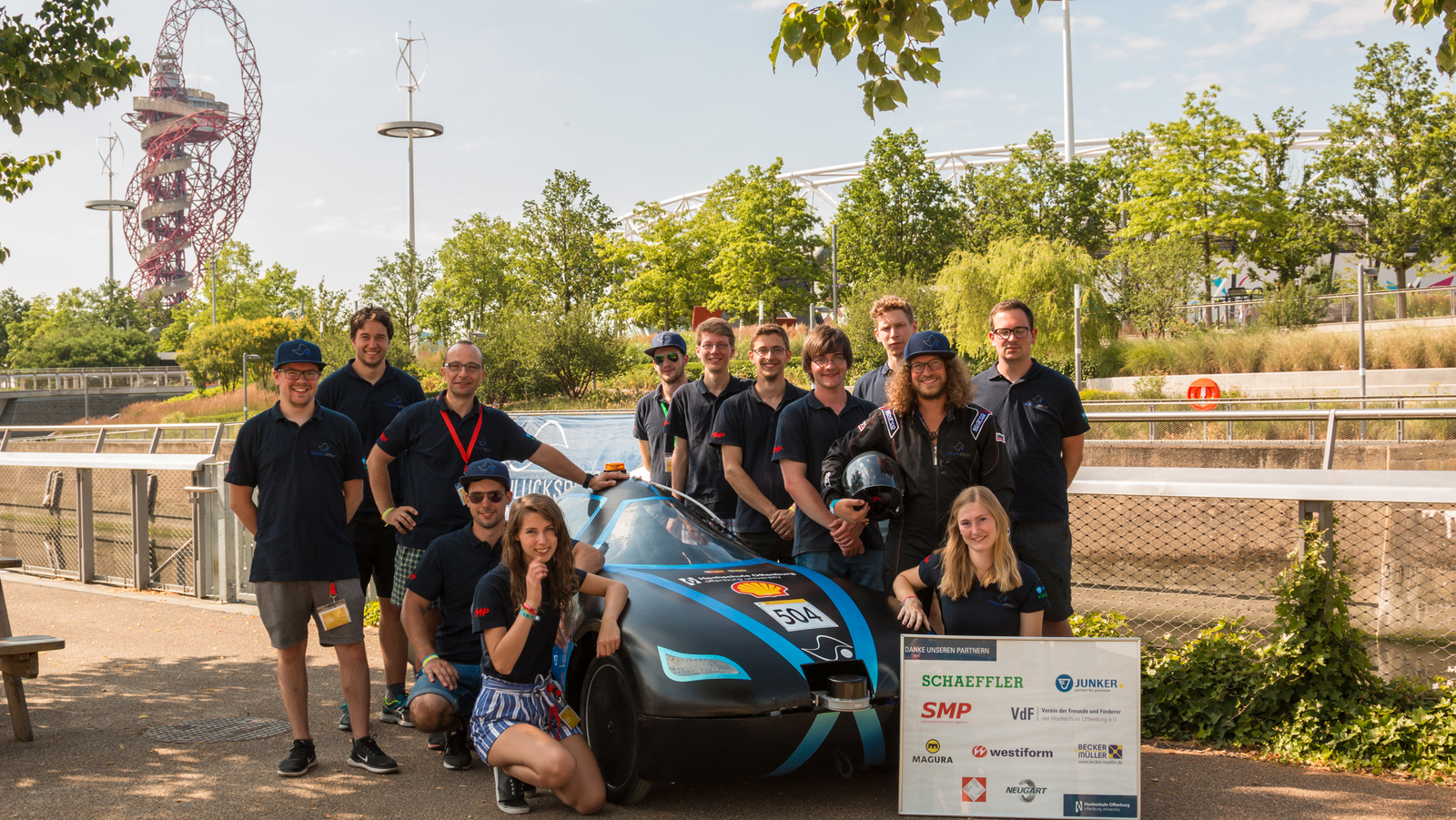In the run-up to the new Autonomous Driving category, Offenburg University’s Team Schluckspecht directly qualified for the competition as the best German team, even though they had only started to equip Schluckspecht V with the corresponding sensors and data-processing hardware for autonomous driving six months earlier. Schluckspecht V also made a very good fourth place in the Urban Concept/Combustion Engines category, where the aim is to cover as many kilometers as possible on only one liter of fuel.
Says Professor Claus Fleig, overall project manager in the London competition: "The Schluckspecht Team did very well in both categories. All participants struggled with the temperatures: 30°C air and 50°C asphalt temperature posed quite a challenge for both men and machines. Nevertheless, the team spirit was excellent and thanks to this great team performance, we managed to be successful in autonomous driving right from the start." - "The atmosphere among the teams was great despite the heat battle. We got along well and also supported each other with ideas and know-how," adds Benjamin Czegeny, student at the Department Media and Information who also reported from the competition in London in the media.
The Danish team "DTU Roadrunners" clearly won in both categories, Urban Concept and Autonomous Driving, but the Danes also had a greater development time of more than one year for their autonomous system.
Offenburg University with its light construction vehicle Schluckspecht has been taking part in the Shell Eco-marathon competition for more than 20 years now. It is one of the largest energy-efficiency competitions worldwide, aimed at the design and construction of vehicles that cover a certain distance with as little fuel as possible. In 2018, a total of 165 teams from 24 European and African countries competed in London, with eleven teams hailing from Germany alone.
